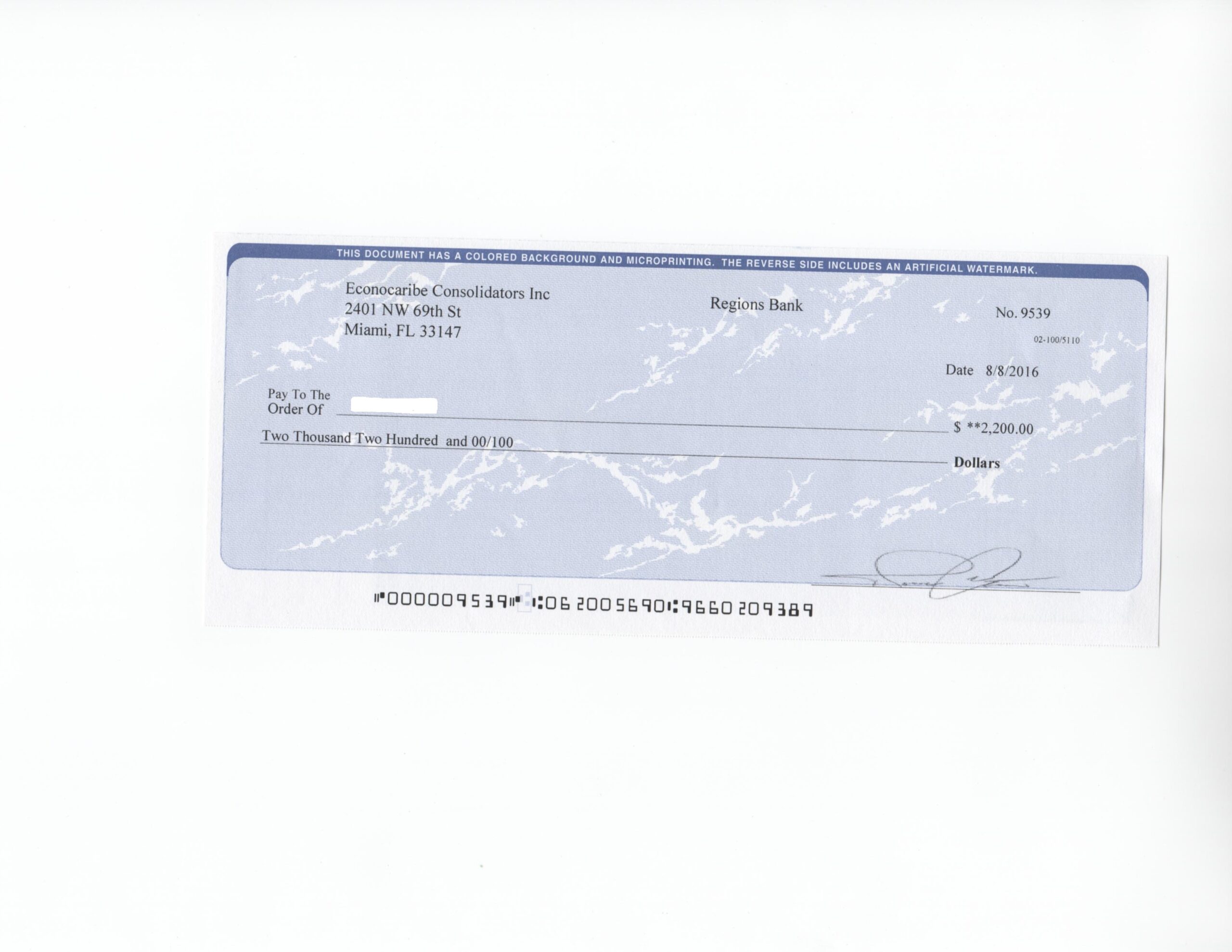
Introduction
Fake check scams are a type of financial fraud that targets individuals and businesses. In these scams, a scammer sends a fake check or money order to the victim and requests that they deposit it into their bank account. The scammer then asks the victim to wire or transfer some of the money back to them, often with a convincing reason such as an overpayment or a refund. However, the original check or money order is fake and will eventually bounce, leaving the victim responsible for repaying the entire amount to their bank. In this article, we will define fake check scams, discuss the different types of scams, and provide tips on how to prevent them.
Definition of Fake Check Scams
Fake check scams are a type of financial fraud that involves a scammer sending a fake check or money order to a victim. The victim is then asked to deposit the check into their bank account and wire or transfer some of the money back to the scammer. However, the original check or money order is fake and will eventually bounce, leaving the victim responsible for repaying the entire amount to their bank.
Types of Fake Check Scams
- Overpayment Scams:
In this type of fake check scam, the scammer sends the victim a fake check or money order for an amount greater than what is owed. The scammer then asks the victim to deposit the check and wire or transfer back the excess amount. However, the original check bounces, and the victim is left responsible for repaying the entire amount to their bank. - Refund Scams:
In a refund scam, the scammer contacts the victim and claims that they are owed a refund for a product or service they have paid for. The scammer then sends the victim a fake check or money order for the refund amount and asks them to deposit it into their bank account. The scammer then requests that the victim wire or transfer back a portion of the refund amount to cover processing fees or other expenses. However, the original check or money order is fake, and the victim is left responsible for repaying the entire amount to their bank. - Secret Shopper Scams:
In a secret shopper scam, the scammer contacts the victim and offers them a job as a secret shopper. The victim is then sent a fake check or money order and instructed to deposit it into their bank account. The victim is then asked to use the money to purchase products or services at specific stores and report back on the experience. The victim is also asked to wire or transfer back any excess funds. However, the original check or money order is fake, and the victimis left responsible for repaying the entire amount to their bank. - Lottery Scams:
In a lottery scam, the scammer contacts the victim and claims that they have won a large sum of money in a lottery. The scammer then sends the victim a fake check or money order for the prize amount and asks them to deposit it into their bank account. The scammer then requests that the victim wire or transfer back a portion of the prize amount to cover processing fees or taxes. However, the original check or money order is fake, and the victim is left responsible for repaying the entire amount to their bank. - Rental Scams:
In a rental scam, the scammer poses as a landlord or property manager and offers a rental property to the victim. The scammer then sends the victim a fake check or money order for the first month’s rent and security deposit. The scammer then requests that the victim wire or transfer back a portion of the funds to cover moving expenses. However, the original check or money order is fake, and the victim is left responsible for repaying the entire amount to their bank. - Employment Scams:
In an employment scam, the scammer poses as an employer and offers the victim a job. The scammer then sends the victim a fake check or money order and asks them to deposit it into their bank account. The victim is then asked to wire or transfer back a portion of the funds to cover equipment or training expenses. However,the original check or money order is fake, and the victim is left responsible for repaying the entire amount to their bank. - Charity Scams:
In a charity scam, the scammer poses as a representative of a legitimate charity organization and requests a donation from the victim. The scammer then sends the victim a fake check or money order for the donation amount and asks them to deposit it into their bank account. The scammer then requests that the victim wire or transfer back a portion of the donation to cover processing fees or other expenses. However, the original check or money order is fake, and the victim is left responsible for repaying the entire amount to their bank. - Foreign Investment Scams:
In a foreign investment scam, the scammer offers the victim an opportunity to invest in a foreign company or project. The scammer then sends the victim a fake check or money order for the investment amount and requests that they deposit it into their bank account. The scammer then requests that the victim wire or transfer back a portion of the investment to cover fees or expenses. However, the original check or money order is fake, and the victim is left responsible for repaying the entire amount to their bank. - Online Auction Scams:
In an online auction scam, the scammer contacts the victim and offers to purchase an item they are selling on an online auction site. The scammer then sends the victim a fake check or money order for the purchase amount and requests that they depositit into their bank account. The scammer then asks the victim to wire or transfer back a portion of the funds to cover shipping or other expenses. However, the original check or money order is fake, and the victim is left responsible for repaying the entire amount to their bank. - Romance Scams:
In a romance scam, the scammer poses as a love interest and builds a relationship with the victim. The scammer then requests that the victim deposit a fake check or money order into their bank account, claiming that they need the money for an emergency or to travel to meet the victim. The scammer then asks the victim to wire or transfer back a portion of the funds. However, the original check or money order is fake, and the victim is left responsible for repaying the entire amount to their bank.
Preventing Fake Check Scams
- Verify the Check:
Before depositing a check, verify that it is legitimate. Contact the bank or financial institution that the check is drawn on to confirm that the account is valid and that the check is legitimate. If the check is from an individual or small business, ask for additional verification such as a phone number or email address. - Wait for the Check to Clear:
Wait for the check to clear before using any of the funds. Banks can take several days or even weeks to clear a check, so be patient and don’t use the funds until you are certain the check has cleared. - Be Wary of Overpayment or Refund Requests:
Be wary of requests for overpayments or refunds. If someone overpays you or offers a refund, ask for clarification and verify that the amount is correct before depositing the check. - Don’t Wire or Transfer Funds:
Don’t wire or transfer funds back to the sender until you are certain the check has cleared and the funds are legitimate. Scammers often request that funds be wired or transferred quickly before the victim has a chance to realize that the check is fake. - Be Careful with Personal Information:
Be careful withyour personal information when dealing with checks or money orders. Scammers may ask for your bank account number, routing number, or other sensitive information. Never give out this information unless you are certain that the request is legitimate. - Use Secure Payment Methods:
Use secure payment methods such as PayPal or credit cards when making transactions. These payment methods offer additional protections against fraud and unauthorized transactions. - Be Wary of Job Offers:
Be wary of job offers that involve secret shopping or other work-from-home opportunities that require you to deposit checks or money orders into your bank account. Legitimate job offers will not require you to deposit checks or money orders and then wire or transfer funds back to the employer. - Educate Yourself:
Educate yourself and stay up-to-date on the latest scams and fraud tactics. Scammers are constantly developing new methods to deceive their victims, so it is important to stay informed and be vigilant. - Report Scams:
If you suspect that you have been the victim of a fake check scam, report it to your bank, the Federal Trade Commission (FTC), and the Consumer Financial Protection Bureau (CFPB). Reporting scams helps protect other customers from falling victim to the same scam.
Conclusion
Fake check scams are a common type of financial fraud that can have serious financial consequences for victims. By understanding the different types of scams and taking steps to prevent them, you can protect yourself from these fraudulent practices. Remember to verify the check, wait for it to clear,be wary of overpayment or refund requests, avoid wiring or transferring funds until you are certain the check is legitimate, be careful with your personal information, use secure payment methods, be wary of job offers, and educate yourself on the latest scams and fraud tactics. If you suspect that you have been the victim of a fake check scam, report it to your bank and the appropriate authorities. By staying vigilant and taking precautions, you can protect yourself from becoming a victim of these deceitful practices and safeguard your finances.








Be the first to comment